« India Government to establish Chairs in Universities named after Eminent Women. | Main | Republic Day Celebrations in New Delhi »
January 25, 2020
The World faces Four Main Challenges: Climate Change, Mistrust of Leaders, Increased Geopolitical Tension, and the Dark Side of the Technological Revolution, Says UN Secretary-General.
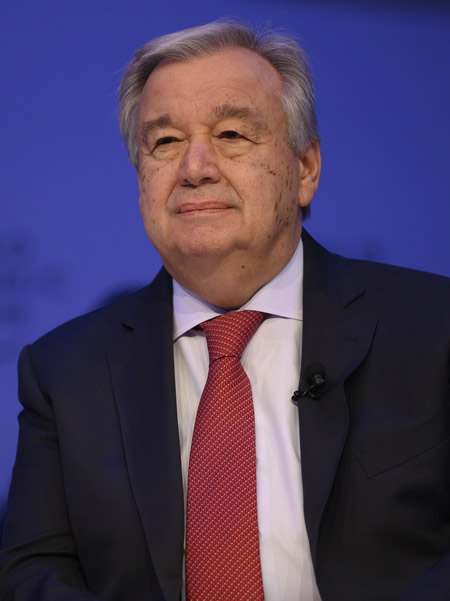
Photo: António Guterres, Secretary-General, United Nations, New York, and the Global Shapers at the World Economic Forum Annual Meeting 2020 in Davos-Klosters, Switzerland, 24 January. Congress Centre. Image provided by & Copyright © World Economic Forum.
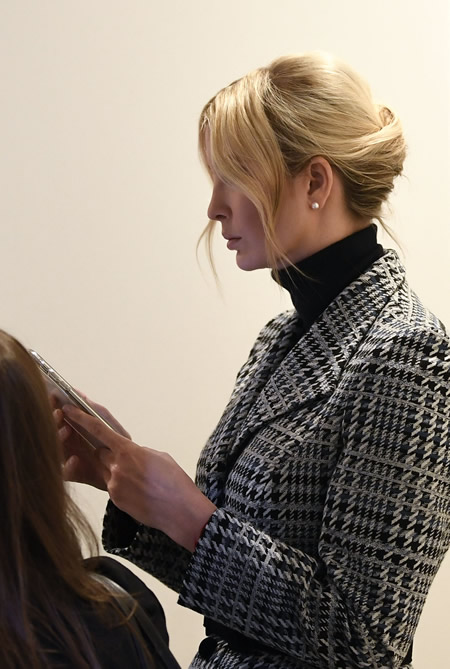
Photo: Ivanka Trump, Advisor to the President White House, United States of America, during World Economic Forum Annual Meeting 2020 in Davos-Klosters, Switzerland, 23 January. Image provided by & Copyright © World Economic Forum / Valeriano Di Domenico.
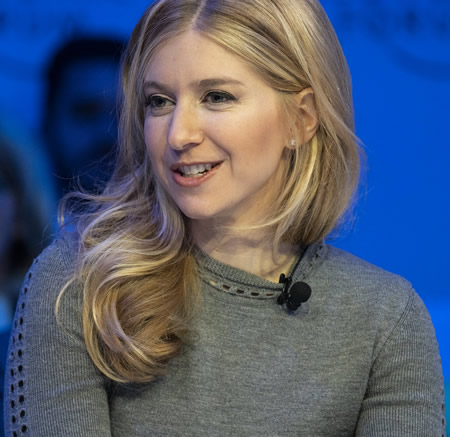
Photo: Sara Eisen, Co-Anchor, Squawk on the Street and Closing Bell, CNBC, USA, speaking in the “After Brexit: Renewing Europe’s Growth” session at the World Economic Forum Annual Meeting 2020 in Davos-Klosters, Switzerland, 23 January. Congress Center - Aspen. Image provided by & Copyright © World Economic Forum/Faruk Pinjo.
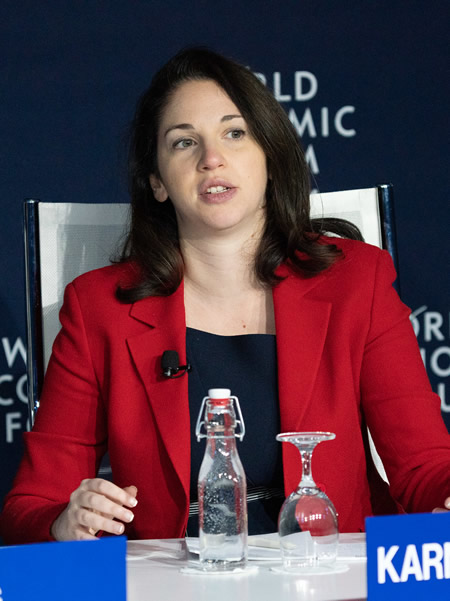
Photo: Karen Karniol-Tambour, Bridgewater Associates LP, speaking in the “Issue briefing: Black Swan and Grey Rhinos in Financial Markets” session at the World Economic Forum Annual Meeting 2020 in Davos-Klosters, Switzerland, 22 January. Congress Centre - Issue Briefing Room. Image provided by & Copyright © World Economic Forum / Greg Beadle.
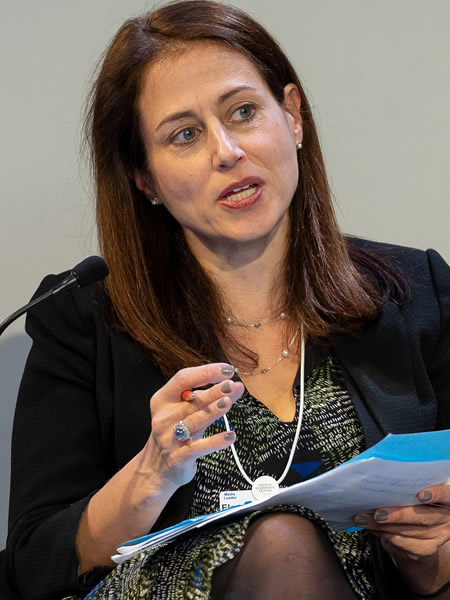
Photo: Elena Cherney, Editor, News Features and Special Projects, Wall Street Journal, USA, speaking in the “The Future of Mobility” session at the World Economic Forum Annual Meeting 2020 in Davos-Klosters, Switzerland, 23 January. Congress Centre - Situation Room. Image provided by & Copyright © World Economic Forum/Sandra Blaser.
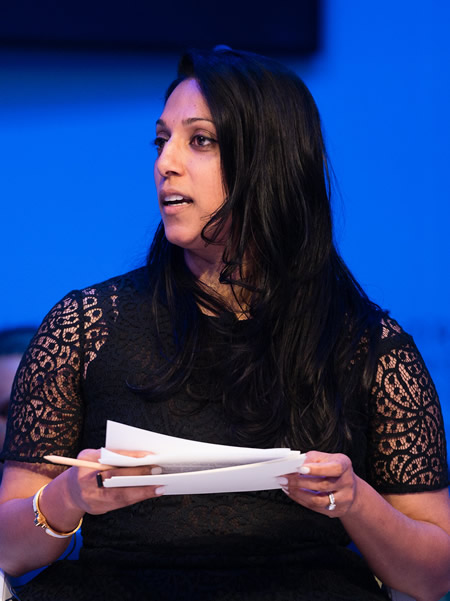
Photo: Penny Abeywardena, Commissioner for International Affairs, Mayor’s Office, City of New York, USA; Young Global Leader speaking in the “Striking a Green New Deal” session at the World Economic Forum Annual Meeting 2020 in Davos-Klosters, Switzerland, 23 January. Congress Centre - Aspen. Image provided by & Copyright © World Economic Forum/Manuel Lopez.
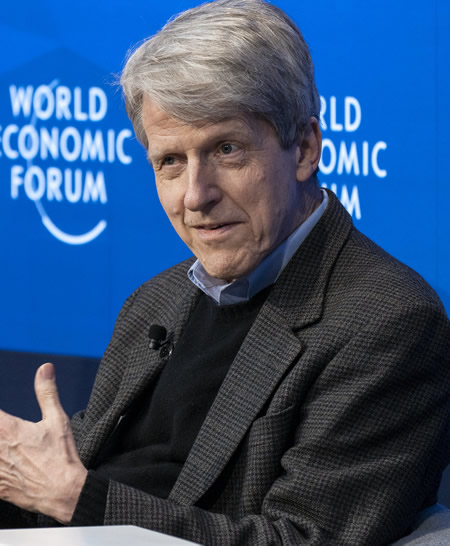
Photo: Robert J. Shiller, Sterling Professor of Economics, Yale University, USA, speaking in the “Power of Narratives” session at the World Economic Forum Annual Meeting 2020 in Davos-Klosters, Switzerland, 23 January. Congress Center - Aspen. Image provided by & Copyright © World Economic Forum/Faruk Pinjo.
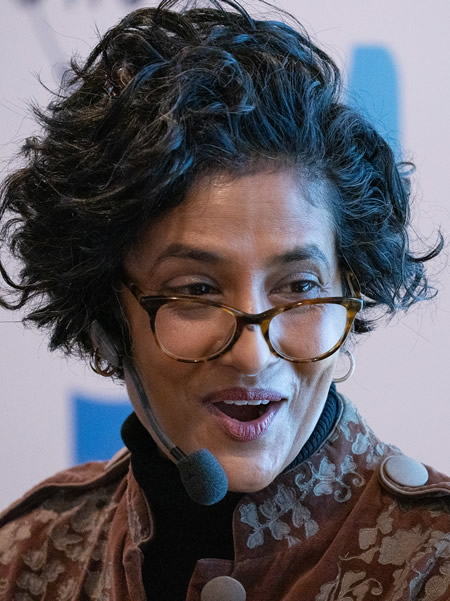
Photo: Somini Sengupta, International Correspondent, Climate Change, New York Times, India, speaking in the Charging the “True Price of Carbon” session at the World Economic Forum Annual Meeting 2020 in Davos-Klosters, Switzerland, 22 January. Congress Centre - Hub B Room. Image provided by & Copyright © World Economic Forum / Greg Beadle.
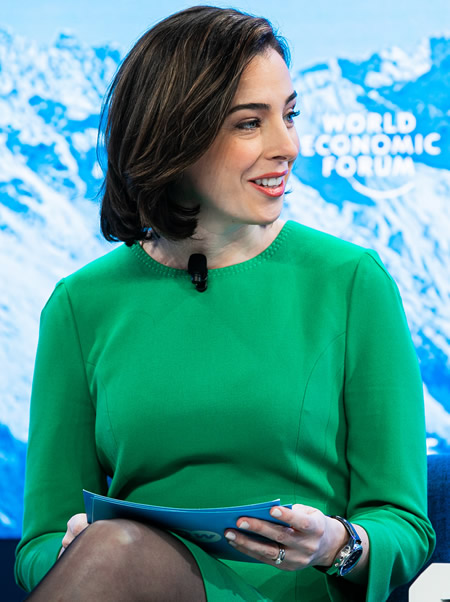
Photo: Sarah Kelly, Anchor-at-Large, Deutsche Welle, USA, speaking during the session “A Decade to Deliver the Global Goals” at the World Economic Forum Annual Meeting 2020 in Davos-Klosters, Switzerland, 23 January. Congress Centre. Image provided by & Copyright © World Economic Forum/Jakob Polacsek.
Davos-Klosters, Switzerland, 24 January 2020 - “I would use two words to describe the state of the world today: uncertainty and instability,” said António Guterres, Secretary-General of the United Nations. Guterres made his statement during a plenary session of the World Economic Forum Annual Meeting 2020.
Using a Christian Biblical reference to the Four Horsemen of the Apocalypse, Guterres described what he called four “enormous challenges” to the world today: climate change, mistrust of leaders, increased geopolitical tension, and the dark side of the technological revolution.
“Climate change is the defining issue of our time,” he said. It represents an “existential threat” to humankind. “The planet will not be destroyed. We will destroy our capacity to live on the planet.”
We need to hold the Carbon emissions below those projected by the Paris Agreement to keep the global temperature within the range targeted by scientists. Countries that he called the “big emitters” will need to make more significant strides; 80% of emissions come from the member nations of the G20 group.
He called for a three-step program to tackle this: carbon pricing, a shift from taxation on income to one on carbon, and the elimination of fossil fuel subsidies. “As a taxpayer, I can’t accept the idea that the Government uses my taxes to melt glaciers,” he said. “It doesn’t make any sense.”
As a measure of mistrust, Guterres noted that 66 countries experienced major demonstrations last year. “In each country, the pretext is different, but there is an underlying factor: mistrust,” he said. “The lack of trust in local establishments.” People believe that the world does not equitably distribute the fruits of globalization. “Seven in 10 people in the world live in countries where inequality is growing.”
His recipe for improvement would start with governments giving a “voice to the people,” particularly to young people, and with particular attention to gender equality. All stakeholders (including civil society, governments, and businesspeople) should work together, notably in the pursuit of the Sustainable Development Goals, he said.
Weaknesses in institutions further exacerbate increased geopolitical tensions. For example, the UN Security Council’s “inability to take decisions” or to enforce the ones they do take, such as the arms embargo for Libya. “We need a global economy,” he said. “And we need multilateral institutions to be in charge.”
To combat “chaos in cyberspace and ensure that artificial intelligence becomes a force for good, we need to boost international cooperation,” he said. To that end, multilateral organizations should change their modus operandi to become more agile, working in networks. “Inclusive multilateralism” would extend beyond national governments to include more participation from local authorities, civil society, business leaders, and others.
The World Economic Forum Annual Meeting 2020 took place from 21 to 24 January 2020 in Davos-Klosters, Switzerland. The meeting brought together more than 3,000 global leaders from politics, government, civil society, academia, the arts, and culture as well as the media. Convening under the theme, Stakeholders for a Cohesive and Sustainable World, participants focused on defining new models for building sustainable and inclusive societies in a plurilateral world.
|GlobalGiants.Com|







Edited & Posted by the Editor | 2:14 PM | Link to this Post






